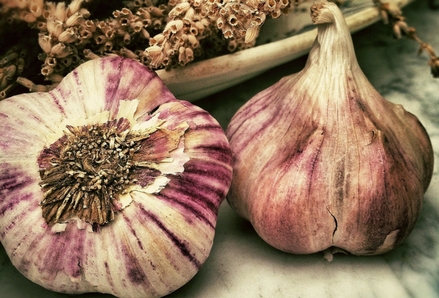This year, we introduced a new feature on social media: the Myth of the Month. Every month, we share a travel health myth and set the record straight with current recommendations from travel health professionals. Have you heard any of these travel health myths?
Myth #1: “Eating garlic prevents mosquito bites.”
False! (But it may keep your travel companions away…) There is no scientific evidence that garlic prevents mosquito bites. The best insect bite protection comes from a combination of:
- Physical barriers: Wearing breathable, light-coloured, long-sleeved clothing.
- Chemical protection: Using insect repellent containing 20-30% DEET or 20% Picaridin.
- Bed nets: Sleeping or resting under a bed net in areas where there is a risk of Malaria, Chagas or other illnesses transmitted by insects.
Find out how to prevent insect bites like a pro with our Insect Bite Prevention advice.
Myth #2: “Dengue’s not that bad and you can’t avoid getting it anyway.”
False! In its most severe form, Dengue can be life-threatening but there are many anti-mosquito bite measures you can take to reduce your risk of falling ill. The number of Dengue infections worldwide has grown steadily in recent years and there is no specific treatment for it – just supportive care of symptoms.
The mosquitoes that transmit Dengue (Aedes aegypti and Aedes albopictus) bite during the day, so use insect repellent and wear long clothing to prevent mosquito bites. These mosquitoes also transmit Chikungunya, Zika Virus, and Yellow Fever, so it’s worth the effort to prevent bites if any of these viruses are present at your destination. (For example, all 4 viruses are currently circulating in areas of Brazil.)
Myth #3: “Using a combined insect repellent and sunscreen product is just as effective as using both products separately.”
If you need protection from the sun as well as insect bites, we recommend using 2 separate products.
- Apply sunscreen first, wait 20 minutes, and then apply insect repellent.
- Don’t forget to reapply both products following the manufacturer’s directions. Insect repellent with DEET can reduce the effectiveness of sunscreen so you may have to apply both more often.
Insect repellent with 20-30% DEET or 20% Picaridin and sunscreen rated to SPF 30 provide good protection.
Myth #4: “I’m covered by government health insurance when I’m travelling in other countries.”
For residents of the USA and Canada, government health insurance plans provide extremely limited coverage for an unexpected illness abroad that requires immediate treatment. Be aware that even if your destination country has universal healthcare, it is unlikely to be cost-free for non-residents.
When you are looking for insurance, take into account the activities you’re planning: Insurers may not cover injuries from activities like rock climbing, camel riding, or injuries that occur under the influence of alcohol. Look for specific travel health insurance packages that fit your health needs and the activities you’re planning abroad.
Myth #5: “I won’t get Malaria because I grew up in an area where it’s common.”
Although partial immunity is developed during years of exposure to Malaria parasites, no one becomes fully immune to Malaria. Travellers previously exposed to Malaria who go back to their home country to visit friends and relatives are also at risk due to waning immunity.
When it comes to Malaria, prevention is key: Learn how to prevent mosquito bites and take antimalarial medications if they are recommended for your destination. Learn more about this ancient disease with the How to Protect Yourself Against Malaria whitepaper and World Malaria Risk Chart.
Myth #6: “Drinking a shot of rum after meals will keep me from getting Traveller’s Diarrhea.”
Not true! A shot of rum (or any other alcohol) will not kill unfriendly bacteria in your gut. The best way to prevent Traveller’s Diarrhea is to be mindful of what (and where) you eat and to practice good hand hygiene.
- Wash your hands frequently and thoroughly with soap and water. If soap and water aren’t available, use an alcohol-based hand sanitizer.
- Choose foods that are well-cooked and steaming hot.
- Only eat fruit that you can peel yourself (such as bananas or oranges).
Avoid food that has been out for a long time (such as buffets) or any uncooked or undercooked food, including vegetables, fish, and meat. Only drink water that has been treated. Avoid ice cubes unless you know that they are made from treated water.
Remember the golden rule: Boil it, cook it, peel it, or forget it!
Do you have more travel health questions?
If you’re a current IAMAT member, you can get your travel health questions answered by an expert through the “Ask a travel health question” feature in your member account. You can also download the latest edition of our Guides from the eLibrary:
- Guide to Healthy Travel: A primer with all the information you need to prevent and treat common travel-related illnesses.
- Guide to Travel Health Insurance: Assistance on where to find travel health insurance and what to look for to ensure you make an informed decision on coverage for your trip.
Not yet a member? Join today.
By Daphne Hendsbee.
Photo by LoboStudio Hamburg, Unsplash.



